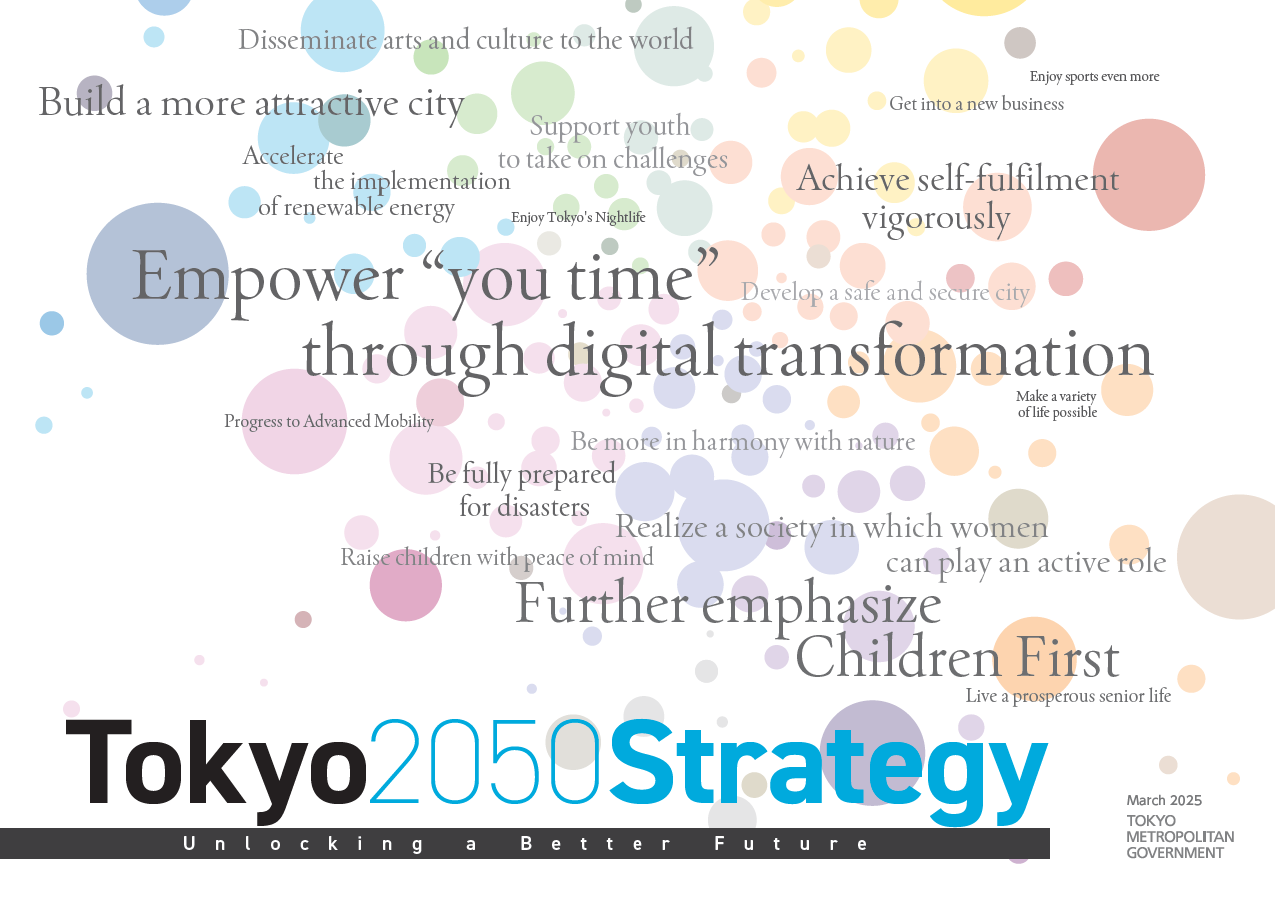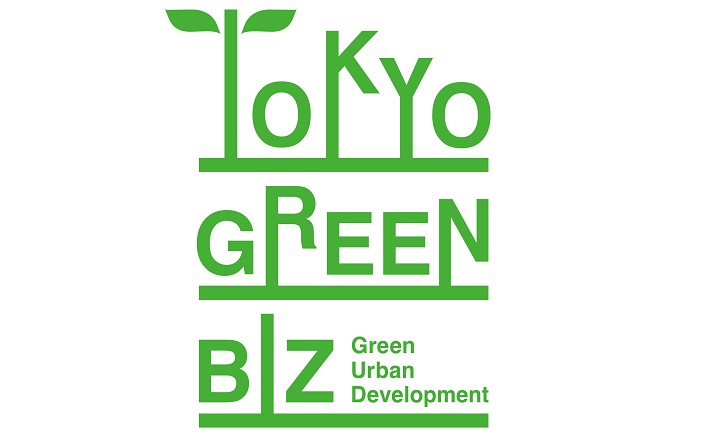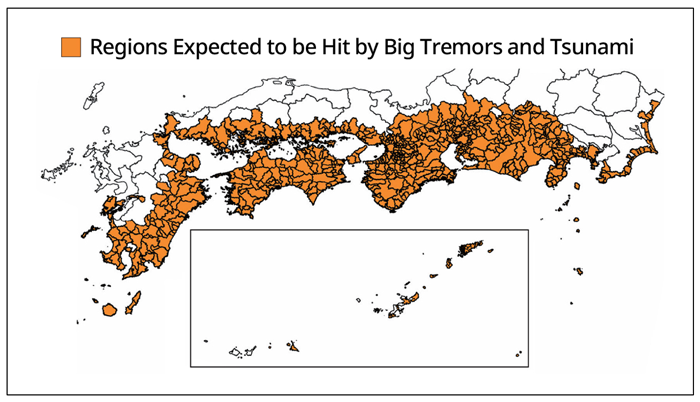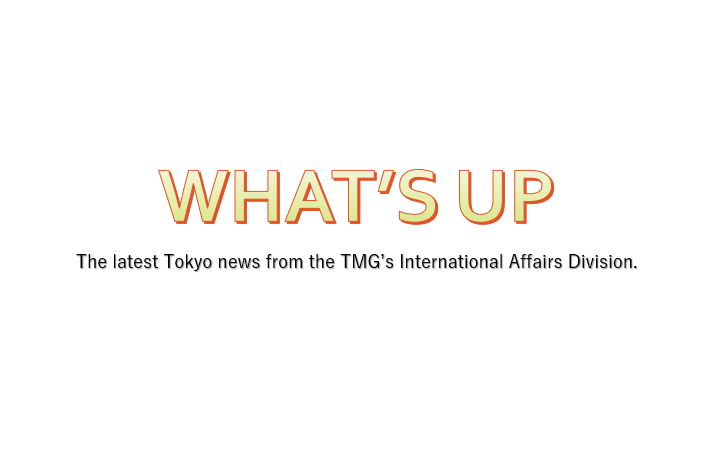Policy Speech by the Governor of Tokyo, Yuriko Koike, at the Fourth Regular Session of the Tokyo Metropolitan Assembly, 2018
In opening the fourth regular session of the Tokyo Metropolitan Assembly in 2018, I wish to relate my basic stance on future metropolitan administration.
Assembly member Toshiaki Koga has just been recognized by the Assembly for his many years of service. I would like to extend my sincere congratulations and deep respect to him for his outstanding contributions toward the development of the metropolitan government over the last 25 years. And, with Mr. Koga being the first Tokyo Metropolitan Assembly candidate that I had the privilege of endorsing when I was just starting out in the Diet, allow me to say that I am just as proud now as I was then.
Recently, the Bureau of Waterworks was investigated by the Fair Trade Commission. As governor of Tokyo, I am taking this very seriously. Although this investigation is still ongoing, the Tokyo Metropolitan Government (TMG) also established its own special investigative team to advance an intense inquiry and the team recently released an interim report. With the investigation finding that a TMG employee did, in fact, leak information, we have a very serious situation that damages public trust in the metropolitan government. With this in mind, I would like to sincerely apologize to this Assembly and to all of the citizens of Tokyo. We will launch TMG-wide efforts to quickly establish measures to prevent a reoccurrence. In addition, by having each and every TMG employee return to a beginner’s mindset as “a public servant of all citizens” and fulfill their duties, we will work to regain the trust of the people of Tokyo.
1. Introduction
-
This year, which also marks the 150th anniversary of the renaming of Edo to Tokyo, is nearing an end. And, Tokyo is looking to take new steps into the future. Seizing this opportunity, we must remind ourselves again of the role Tokyo must play as Japan’s capital.
Recently, a debate regarding how Tokyo, the capital, should be, is playing out again. This argument makes it seem as though Tokyo’s concentration of resources is the main obstacle standing in the way of revitalization of rural areas. In the case of the United Kingdom, however, although the global financial crisis sent the country’s economy into stagnation, through investment to host the 2012 Olympic and Paralympic Games and other efforts, London’s strengths and attractiveness as a city greatly improved, and the economic effects spread to rural areas as well, facilitating an early recovery of the country’s economy. Years later, London continues to drive the economy for the steady growth of the U.K. As pointed out in the report issued by the Committee to Consider Japan and Tokyo’s Growth, which members of each metropolitan assembly faction also participated in, London is “an excellent example of how development of the capital and strengthening of international competitiveness contributed to economic growth of the entire country.” I believe that this is exactly the model Tokyo and Japan should follow.
With trade friction between the United States and China and other factors in the background, uncertainty with respect to the global economy is now growing, including the International Monetary Fund lowering its growth forecast for the first time in two years and three months. Japan’s latest GDP preliminary estimates show negative growth. While seen as a temporary setback by some, if you consider the unstable economic situation overseas, the situation certainly does not warrant optimism. Furthermore, the further aging and decline of the population makes it even more crucial for the national government to not stop Japan’s growth by taking away power from Tokyo, which has been the driving force behind Japan’s economy.
-
With such a crisis approaching, Tokyo will make strengthening its “earning potential” its mission as the capital, and while working toward the creation of a mutually beneficial environment for all areas of Japan, we will guide the progress of the country. To achieve this end, we must build an environment where anyone can demonstrate their abilities with the support of person-to-person connections and enhance the dynamism of Tokyo, including raising productivity by promoting work style reform, advancing the participation of women in society through means such as eliminating child daycare waiting lists, and providing support for senior citizens and the disabled so that they can work in ways that satisfy their hopes and ambitions. And, we must not only protect the safety and peace of mind of Tokyo citizens, but also strengthen Tokyo’s functions as the capital and Japan’s political and economic nerve center by further advancing disaster preparedness programs and measures to combat climate change to enhance the city’s ability to handle large-scale earthquakes, as well as torrential rain and extreme heat, which are becoming more severe with each passing year. In addition, there are an endless number of measures that need to be advanced so that Tokyo can continue fueling Japan’s growth, including implementing growth strategies to enable Tokyo to win in cutthroat global competition, as well as bolstering the transportation and distribution network that supports such efforts.
These are precisely the initiatives that need to be taken to realize the “Safe City,” “Diversity” (Diverse City), and “Smart City” I aim to create. Concerning the Action Plan for 2020, which sets forth the path to creating these “three cities,” we are currently working to further strengthen policies to accurately respond to changes in society and give shape to the new strategies set forth in the Key Policy Directions 2018. And, concerning the Reform Plan for 2020, which aims to achieve functional and effective policy implementation, through “reform to make metropolitan administration more visible,” we have mostly completed overhauls and evaluations of each the TMG bureau’s main programs, and are now at the stage of concretely implementing reforms based on these evaluations. To thoroughly ensure program implementation and wise spending from the perspective of “putting the citizens of Tokyo first,” we will continue to advance reform without letting up. In another area of metropolitan administration reform, we will advance service improvements at parks, zoos, and other facilities used by many Tokyo citizens by taking their perspectives. We will also re-examine how extra-governmental organizations should be as members of the TMG group, and promote initiatives for strategic use of these entities.
We will do what needs to be done for Tokyo and its people, as well as for all of Japan as the nation’s capital. Please allow me to reiterate that this is my basic stance on metropolitan administration.
-
This is exactly why we absolutely cannot allow a revision of the tax system that targets Tokyo. Tokyo, which serves as the engine that drives Japan’s economy, must continue to make effective investments, including upgrades to infrastructure, which contribute to the revitalization of all of Japan. Tokyo’s elderly population will reach 3,240,000 by 2025, increasing by 160,000 in just the next seven years. Since growth of this segment of the population will occur on an unprecedented scale, as well as at an unprecedented speed, we must also steadily work on measures to enable senior citizens to live with peace of mind. With an eye to such a future for Tokyo, the TMG has established sound financial management through constant review, including securing about 160 billion yen in fiscal resources over the past two years by conducting thorough program reviews. The act of targeting Tokyo’s fiscal resources, which are indeed the product of effort, will strip away Tokyo’s earning potential and have negative results for all of Japan as well. It also belittles the efforts taken by local governments for fiscal reform.
Of course, Tokyo does not object to the importance of revitalizing rural areas extolled by the central government. However, if Japan is to pursue the true revitalization of rural areas, shouldn’t the local tax and finance system be reformed and the authority and fiscal resources of local autonomies be expanded so that all regions, including Tokyo, can use their intrinsic powers to revitalize their communities based on the actual situation in their area and the voices of the people who live there?
A strong point of local government is its ability to channel the voices of residents, who generate the area’s vitality, into effective measures. For example, the TMG has also created a system that allows Tokyo citizens and university researchers to submit proposals for programs ahead of drawing up the budget. We are also engaged in efforts such as holding regular meetings with universities with the aim of finding solutions to various problems Tokyo faces. We will fully utilize the power of local government to join together with residents, pool knowledge, and demonstrate this strength. Only by fully leveraging the strengths of local autonomies can we achieve revitalization of local economies that create vibrant communities, as well as sustainable growth for Japan based on that revitalization.
-
From such standpoints, Tokyo will work together with other regions of Japan to find the best way to achieve true local revitalization, and by working to achieve coprosperity through utilizing our respective characteristics and strengths, we will aim to grow the pie that is Japan’s economy. Tokyo has been implementing a range of concrete initiatives to realize mutually beneficial and prosperous relations with all areas of Japan, including expanding contracting opportunities related to the Olympic and Paralympic Games Tokyo 2020 for small and medium-sized enterprises (SMEs) nationwide, establishing tourism routes linking Tokyo to areas across Japan, and collaborating with antenna shops in Tokyo to promote the attractions of various regions. One example of such initiatives is the Japan Association of Governors project team that I proposed and established to promote the use of timber harvested in Japan. The activities of the team are currently being advanced by 45 prefectures. I would like to take the opportunities provided by such initiatives to again share our strong resolve with local autonomies nationwide that “it is local autonomies that will build dynamic local communities using their own authority and fiscal resources and drive the growth of Japan.”
Recently, I met with many high-level government officials and politicians from governing and opposition parties to explain Tokyo’s views on the local tax and financial system. Last month, along with compiling Tokyo’s views on the matter and widely promoting this stance, I have asserted our firm opposition to the current review of the tax system through an “all-Tokyo” formation made up of members of this Assembly and the Tokyo municipalities, and the collaboration of others, including Osaka Prefecture, by submitting new requests with high-ranking members of the ruling party’s Tax System Study Commission and other Diet members. Tokyo’s growth, and that of Japan, must definitely not be stopped. Although the debate on the tax system is drawing to a close, we want the central government to make a wise decision that gives due consideration to Japan’s future.
2. Tokyo drives Japan’s economy as the gateway to the country
Looking outside of Japan, the momentum of cities full of vitality knows no end. Not only powerhouse cities such as London and New York, but cities in Asia as well, including Beijing, Shanghai, and Shenzhen, which play home to many rising unicorn startups, are leading the advancement of cities while creating waves of new values. As competition between cities continues to intensify, we will boldly roll out global-minded growth strategies so that Tokyo can, as the gateway to Japan, attract people and money from around the world to drive our country’s economy.
-
One of Tokyo’s crucial growth strategies is the Global Financial City: Tokyo vision announced last year. As part of that vision, the newly established Tokyo Financial Award is an initiative to further revitalize Tokyo’s financial sector by recognizing businesses that develop innovative financial services that meet the needs of Tokyo citizens, as well as outstanding businesses involved in ESG (Environmental, Social, and Governance) investment. The awards will be presented in February of next year following a review of award entries by a panel of experts.
On my recent official trip to London, together with private financial firms, we strongly promoted Tokyo as an Asian financial hub with the cooperation of the long-established financial center, the City of London. At a meeting with the Lord Mayor, who heads the City of London, we agreed to further strengthen cooperation through a program that will allow the TMG to send an employee to the City. Continuing with these efforts, we will speedily implement measures to make Tokyo Asia’s number one financial city, including launching a public-private financial promotion organization next fiscal year to attract overseas financial companies to Tokyo at an even faster pace.
-
Invigorating SMEs that support the economy and employment is vital to Tokyo’s sustainable growth. At this regular session of the Assembly, we are proposing an ordinance to promote SMEs and small businesses, which clarifies the basic principles and policy direction for this, based on discussions by experts, leaders of relevant organizations, and others rooted in actual experience on the ground. Upon principles such as promotion of measures focusing on the importance of SMEs and collaboration with a variety of organizations, we will comprehensively implement effective policies as the responsibility of the TMG.
And, the compass setting forth the concrete path to follow will be the Medium to Long-Term Vision for the Promotion of SMEs (tentative title), deliberated by the aforementioned group of experts and others. The interim report, which was released last month, clarifies the form Tokyo should pursue in the Vision, and sets forth ambitious numerical targets to achieve that goal. With the aim of formulating the Vision in January, the contents will be polished up while taking various opinions into consideration.
-
We will also steadily advance initiatives for the growth of startups that generate fresh innovation and putting constantly evolving cutting-edge technologies into use.
Last week, the finals of the TOKYO STARTUP GATEWAY, one of Japan’s largest business plan contests, was held. I hope that the contest, which features young people looking to start a business competing against each other while refining their individual business plans with the support of the TMG, will lead to the birth of many world-class entrepreneurs. And, from this fiscal year, we will strongly support the establishment of businesses in a wide range of fields, including launching support for the cultivation of startups for drug development from the standpoint of utilizing promising technologies possessed by startups to develop pharmaceuticals and treatment methods -- a first for a local autonomy in Japan.
With the aim to put advanced technologies to use in society, we will operate an autonomous bus service in Tama New Town, and in the Tokyo islands, autonomous vehicles on Miyakejima Island with an eye to tourism promotion. In addition, we will advance a range of field tests. These include having robots perform tasks such as providing information and enhancing security at Toei Subway stations. During my recent London visit, I was also able to learn about examples of how open data is being utilized through public-private partnership from Mayor Sadiq Khan. Through analysis of government and private sector-held data, data projections, and other means, Tokyo will also channel this into the implementation of highly effective measures in the area of city management. In economic policy directions set forth last month by the central government’s Council on Investments for the Future and others, realization of Society 5.0, which aims to raise labor productivity by incorporating technological innovations such as AI, robotics, and big data, has been positioned as one of the main pillars of Japan’s growth strategy. Through the aforementioned diverse initiatives, Tokyo will rapidly bring out the infinite potentials of innovative technologies and lead the way to realizing the new society Japan must pursue.
-
On October 11th, Toyosu Market, which will serve as the new “kitchen” for the citizens of Tokyo, opened. I would like to again express my gratitude to all of those affiliated with the market, including all of the business operators at the market who systematically proceeded with this major relocation from Tsukiji, and everyone in Toyosu who helped facilitate the smooth opening of the market. Since its opening, operations at the market have been going smoothly overall, and with the partial opening of Ring Road No. 2 last month, we have secured a route for the smooth flow of traffic. I have also visited the market twice and felt the strong enthusiasm of the market operators and the great vitality of the new market which embodies this spirit. While flexibly responding to the changing times, we will continue to work with market operators and everyone in the local community to establish the Toyosu brand and create its own vibrancy, and develop the market as the central market, which also plays a part in Tokyo and Japan’s growth.
And, with respect to Tsukiji, which is expected to take on a new role in further elevating the appeal of Tokyo, we are currently examining the urban development policy for the area. After widely gathering opinions from the people of Tokyo, we plan to compile the policy within this fiscal year. Leveraging Tsukiji’s potential and its prime location, we will work to materialize the new development plans so that the area can contribute to Tokyo’s sustainable growth.
-
To realize a sustainable Tokyo, we must lead the world not only in finance and the economy, but also in the area of the environment. As global momentum builds for realizing a post-carbon society, including the start of COP24 the day before yesterday, which aims to finalize the rules of the Paris Agreement, Tokyo will further bolster measures to combat climate change, focusing on greater energy efficiency and improved use of renewable energies, with the aim to become a zero-emission city.
Regarding the Tokyo Cap-and-Trade Program, which has been steadily achieving results since its fiscal 2010 launch, we will evolve upon the system, including raising the mandatory CO2 emissions reduction for office buildings and other facilities for the new compliance period starting in fiscal 2020, as well as introducing new incentives for the expanded use of renewable electricity. With regard to the program requiring small and medium-scale facilities to report their CO2 emissions and energy saving measures, along with announcing outstanding companies, by newly mandating reporting on the status of renewable energy use, we will further speed up the efforts of companies. Furthermore, regarding the environmental performance evaluation program for large buildings, through means such as newly established criteria for the highest ranked “zero-energy building” and also expanding buildings covered by the program, we will work to make buildings even more energy efficient.
After taking into consideration the opinions of the people of Tokyo, we aim to implement all of these programs starting in fiscal 2020.
3. Making people, the energy of Tokyo, shine
People are the energy of Tokyo, and to ensure that they keep on shining, we will continue to advance a range of policies for building a city where everyone can play an active role.
-
Supplementary budget for expediting measures
Safety and security are fundamental prerequisites for making people shine. To quickly implement urgent projects for disaster preparedness and measures against heat that prepare for summer heat as intense as what was described to be a natural disaster this year, we have proposed a supplementary budget to this regular session of the Assembly.
With this budget, we will provide support to municipal and private schools, as well as other private-sector entities, for removing concrete block walls that pose safety concerns and installing wooden fences. Support will also be given to municipal governments for installing emergency power systems in their main office buildings, which will serve as the headquarters for disaster response operations. As school gymnasiums will serve as evacuation centers in the event of a disaster, we will support municipalities in installing air-conditioning systems in the gyms of their schools. For intensive and effective implementation of heat mitigation measures for the Olympic and Paralympic Games Tokyo 2020, we will set up a task force in an extra-governmental organization. Regarding the installation of air-conditioning systems at school gyms, our support program can also be used for heat insulation work and design costs as well, and we also plan to expand the scheme to include schools that are leasing air-conditioning systems for their gyms in the initial budget plan for the next fiscal year.
To protect the lives of Tokyo residents, we will take effective measures in a timely manner and with due understanding of the situation on the ground. Your deliberations on the budget proposal would be greatly appreciated.
Building a safe and secure city
We must protect the functions of the capital from a massive earthquake that can occur at any time. To ensure that, based on an ordinance for advancing the earthquake resistance of buildings along designated disaster response routes, which are the lifelines that enable restoration efforts in the wake of a disaster, we are encouraging the owners to enhance the earthquake resistance of their property. Currently, more than 80 percent of such buildings in Tokyo fulfill earthquake resistance standards. To further promote seismic retrofitting, we aim to submit a bill to next year’s first regular session of the Assembly to amend the ordinance and prescribe obligations for those who occupy the property, such as tenants.
As for districts with close-set wooden houses, we will accelerate measures to raise fire resistance by preparing attractive places for relocation so that entire communities can move while maintaining personal ties. As a starter, we released last month an implementation plan for a project that will take place in the Kohoku district of Adachi-ku. By the end of this fiscal year, we plan to release a similar implementation plan for the Sekibara district, also in Adachi-ku. While taking measures carefully tailored to each area’s situation, we will continue to steadily work to raise the level of fire resistance of built-up areas and to create firebreak belts.
The number of aging condominiums is set to rise rapidly, and encouraging appropriate management of such buildings is also essential for building a safe and secure city. Enhancing the functions of condominium associations will be the key to this, and an expert panel set up in March discussed a broad range of issues related to the matter. Last week, we received the panel’s final report on the framework for a system. Based on its content, we will work on a new ordinance for advancing necessary measures, with the aim of presenting this ordinance bill as well to the first regular session of the Assembly.
-
An environment that allows everyone to play an active role in society will be the foundation for keeping Tokyo vibrant into the future. Particularly, it is essential that society as a whole embraces those who have difficulty finding jobs for various reasons and that a good employment environment is built for such people. Based on this concept of social inclusion, we set up a panel of experts last week and started discussing how we could better help people looking for jobs, with the aim of establishing an ordinance for supporting all Tokyo citizens in finding employment. We will continue studying approaches from various perspectives in order to realize a vibrant Tokyo where everyone can land jobs according to their desires and individual characteristics.
-
Next, I will speak about our efforts for nurturing people who will shine in the future. The Council for Educational Affairs met in August and discussed how to enhance children’s reading comprehension ability. Based on the discussion, the Board of Education last month launched a project for enhancing reading comprehension ability and self-learning ability, which are increasingly important in this era of AI. I hope the project will vigorously explore effective teaching methods based on the expertise of professionals and people working at schools, and will successfully formulate Tokyo’s own new education program.
Next week, on December 13, the Council for Educational Affairs will hold its second meeting of this fiscal year. To achieve a good balance between enhancing the quality of education and reducing the burden on teachers, the meeting will be themed on utilizing the power of senior citizens of the community and retired teachers for schools. Participants will discuss this theme so that schools will be able to provide a variety of attractive educational programs and reform the work style of teachers. As for work-style reform for teachers, which is an urgent issue, it is important to comprehensively advance various other measures as well. So, we will consider a new scheme for that purpose, too.
Regarding the reform of metropolitan high schools, last month, we released the outline of the New Implementation Plan (Second Phase), which shows the outlook for the three years from the next fiscal year. The outline describes ideas for creating schools that are chosen by students and their parents, including nurturing “meisters” who will support industries of Tokyo, establishing a science and math course to improve education in these disciplines, and collaborating with universities. The Board of Education will continue its deliberations so it can complete the plan in February next year.
-
The TMG is advancing studies on establishing its own ordinance for protecting children from tragic abuse. Based on considerations such as opinions from citizens and municipalities about the fundamental concept we released in September, we announced the proposed outline of the ordinance just last week.
With the basic idea that society as a whole should work to protect children, the outline defines parents’ responsibilities and clearly bans physical and other forms of punishment to prevent child abuse. In order to quickly find and respond to child abuse cases, the outline calls for creating an environment that makes it easier to report such cases to authorities and for having relevant organizations cooperate with each other more closely. We will have the ordinance include a wide range of matters, including adequate support for abused children, necessary guidance and support for their parents/guardians, and human resource development for ensuring the appropriate operation of child guidance offices, so that it will contribute to the sound growth of children and the protection of their rights and interests. We will continue to study the issue carefully while listening to opinions from citizens about the proposed outline, with the aim of presenting the ordinance bill to the first regular session of the Assembly.
-
To realize a city where everyone can lead a fulfilling life, it is also essential to create relaxing spaces where people can enjoy rich nature and various cultures.
Kasai Marine Park added to the Ramsar Convention list
In winter more than 20,000 waterfowl come to Kasai Marine Park, which is located close to central Tokyo. In October, the park was registered as an internationally important wetland under the Ramsar Convention, becoming the first such site in Tokyo. This is very valuable recognition given that wetlands are decreasing worldwide. I hope the registration will encourage more people in Tokyo to visit and enjoy our waterfront areas. And by leveraging the park’s location next to the Kasai Canoe Slalom Centre for the Tokyo 2020 Games, we plan to convey Tokyo’s fascinating harmony of urban life and nature to many people in the world.
Formulation of the “Grand Design for Hibiya Park”
With cultural facilities and lots of greenery, Hibiya Park is a popular oasis in the heart of Tokyo. Now, 115 years since its opening, the park must make the most of its potential to meet the diversifying needs of its users. A panel that includes outside experts has repeatedly discussed how the park should be in the future. Later this month, the panel will release the “Grand Design for Hibiya Park,” which describes the future vision the park should pursue.
Works are currently underway to prepare the park for the Tokyo 2020 Games, making facilities barrier-free and renovating the large open-air concert hall. Last month, SPORTS STATION & CAFÉ was opened to build momentum for the Games and propose new lifestyles. Based on the grand design, and other matters as well, we will further enhance the attractions of Hibiya Park as Tokyo’s central park.
4. Games legacy that will make Tokyo a more mature city
Taking the opportunity of the Tokyo 2020 Games, we will accelerate specific efforts to build a legacy of the Games for the sustainable growth of Tokyo and to make it an even more mature city.
-
We will further advance our work-style reform initiatives, such as promoting staggered commuting hours through the “Jisa Biz” campaign and encouraging teleworking, and turn them into social movement so that we can raise productivity, which is key to Tokyo’s growth, and enable many various people to work actively. These initiatives will also help ease traffic congestion during the Games. In October, the Tokyo Metropolitan Government and seven financial institutions and associations in Tokyo, signed a partnership agreement for promoting work-style reform. Last week, we jointly held a seminar for businesses in Tokyo to promote teleworking. In close cooperation with financial institutions that support small- and medium-sized enterprises, the TMG will work to increase the number of companies that support the idea of work-style reform.
Currently, about 900 companies are taking part in the “Jisa Biz” campaign. Last week, we presented awards to companies that have taken excellent initiatives. The first winter round of Jisa Biz will start late next month. We will work to achieve our goal for this fiscal year of increasing the number of participating companies to 1,000, and to make Jisa Biz the new normal.
To ease traffic congestion during the Games, we released in October a set of maps that show the impact the event will have on roads and railway lines if no measures are taken at all. The next step will be having companies and other parties make specific preparations for advancing traffic demand management to reduce and disperse traffic. To accelerate this movement, we started holding seminars and consultation sessions last week. To smoothly deliver the Games and sustain economic activities at the same time, we will continue to take detailed measures and work together with the members of the National Capital Region Nine Government Summit Council to broadly call out to people and entities for cooperation on this matter.
-
To prepare for the Games and for further aging of the population after that, we will take new initiatives to create, together with the private sector, an environment where lodgings are convenient for all.
First, to make it easier for wheelchair users and many other people to use guest rooms, we wish to establish what would the first ordinance in Japan to stipulate barrier-free standards for regular guest rooms at accommodation facilities that will be newly built or extended. Based on the opinions submitted during the recent public comment period, we will work out the details with the aim of presenting the bill to the first session of the Assembly.
Also, in the Facilities Development Manual Based on the Ordinance to Promote Barrier-Free Urban Planning we will include specifications for guest rooms made accessible to senior citizens and people with visual or hearing impairments. We will also consider expanding the subsidy program for hotel operators and work to build momentum by holding seminars and other means. To realize OPEN STAY TOKYO, where everyone can find lodgings comfortable for them, we will implement a range of policies, including promoting efforts to visualize information on accessible guest rooms.
-
The support of Games Volunteers and City Volunteers will be essential for the success of the Games. For both types of volunteers, applications will be accepted until December 21. We have been receiving applications from a broad range of generations, and the number of applicants for City Volunteers surpassed 20,000 today. I hope many more people will come forward. I believe that being a key player of the Games, as are the athletes, and being part of the event as the face of host city Tokyo, will leave a significant legacy in the minds of each volunteer as well. Together with the volunteers, we will do our utmost to ensure that people from around the world enjoy Tokyo’s hospitality, that athletes can deliver record-setting performances, and that the Games will leave great memories for everyone.
-
In the Asian Para Games held in Indonesia in October, Japanese athletes competed very strongly, achieving the best-ever medal count for Japan. I would like to express my deep respect for the athletes, and I hope they will further hone their skills in the run-up to 2020.
Late this month, we will hold an experiential sports event, “Challe-Spo! TOKYO,” which allows participants to enjoy all 22 Paralympic sports. New programs will be incorporated, including one that uses virtual reality to give participants a dynamic sporting experience. I hope many Tokyo citizens will come and see how fun it is to play and watch para sports.
Last month, we started a program in which coaches, physical therapists, and other people who support para athletes are recognized as Tokyo Para Sports Staff. This aims to improve the environment for them and enhance the competitiveness of athletes. As a mature city that will be the first city to host its second summer Paralympic Games, Tokyo will continue to take various measures to further promote para sports.
During my recent visit to Paris, Mayor Anne Hidalgo and I agreed that our two cities will strengthen cooperation for the success of the Olympic and Paralympic Games, which both cities are now preparing to host, as well as in various areas including the environment, culture, and tourism. I was also able to broadly showcase the wonderful aspects of Tokyo’s culture. For example, an event was held in front of Paris City Hall featuring furoshiki, the traditional wrapping cloth that combines art and eco-consciousness. I think my visit helped to further raise interest in Tokyo, which is already attracting attention in the run-up to 2020.
Last month at Haneda Airport, a crossroads of people and cultures from around the world, we held a promotional event to give a further boost to Tokyo Tokyo FESTIVAL, the cultural program for the Games. We will continue to step up our efforts to promote this program to people in Japan and throughout the world, and expand our collaboration with cultural projects undertaken by municipalities in Tokyo to build up momentum for the Games through the power of culture as well.
In the run-up to Rugby World Cup 2019TM, a test match was recently held between Japan and New Zealand, a team labeled the world’s strongest. Japan put up a good fight, thrilling the crowd at Ajinomoto Stadium and rugby fans at the public viewing event in the Yurakucho district. Various promotional activities are taking place in many parts of Tokyo, and we will further build up expectations throughout Tokyo for exciting matches between the world’s top teams at the World Cup, which is now just 290 days away.
5. Tokyo and Japan’s growth must not be stopped
Entrepreneur Eiichi Shibusawa, who is called the father of Japanese capitalism, helped found the Tokyo Chamber of Commerce and Industry and various companies. On top of that, he committed himself to as many as 600 social contribution activities, including serving for half a century as director of a welfare facility operated by then Tokyo Prefecture for impoverished people and orphans. The United Nations is currently pursuing the Sustainable Development Goals (SDGs) for a society that “leaves no one behind.” I think we can say that Shibusawa was already undertaking such efforts more than 100 years ago in Tokyo.
Let me share with you his words.
“Wealth is true wealth only when it makes me rich and makes other people rich and thus makes the nation advance and develop.”
If we use this logic, wealth pursued by Tokyo is wealth that makes both Tokyo and the other areas prosper and enables the sustainable development of the entire country. In order to obtain such “true wealth” and make Japan’s entire economy expand, while implementing various innovative approaches to heighten the activities of people, the Tokyo Metropolitan Government will compete with other cities of the world and take measures to ensure the co-existence and co-prosperity of Tokyo and other parts of Japan. I request the understanding and cooperation of the Assembly members and Tokyo citizens, and once again, request that the national government take a broad view of the matter in making its decision.
Let me tell you once again.
“Tokyo and Japan’s growth must not be stopped.”
Including the matters to which I have already referred, a total of 36 proposals have been presented to this regular session of the Tokyo Metropolitan Assembly, including one budget bill and 21 proposed ordinances to be deliberated among the Assembly members.
This concludes my policy speech to the Assembly. Thank you.








Recommended for You
Govenor Koike Calls for Innovation at FII PRIORITY Asia Summit 2025
December 1, 2025
Tokyo Governor’s Mideast Tour Highlights Multi-City Resilience Efforts and Japanese Capital’s Global Presence
November 27, 2025
Japan-U.S. Leadership Summit Held at UNU in Tokyo
October 10, 2025
TIME TO ACT FORUM 2025: Strategically Tackling Climate Change
October 7, 2025
Tokyo Governor Tours U.S., Urging Cities Worldwide to Fight Common Challenges Together
September 18, 2025
Tokyo 2025 Deaflympics (Part 1): A Leap Towards an ‘Inclusive Society’ with Sign Language
November 12, 2025
Championing Inclusive Growth: OECD and Tokyo’s Shared Vision
November 13, 2025
Governor Koike Inspects Hachijojima Island Hit by Typhoons
October 15, 2025
Tokyo Disaster Response Headquarters Meeting (2nd Session)
October 9, 2025
Selection of My Fave Umbrellas
September 25, 2025